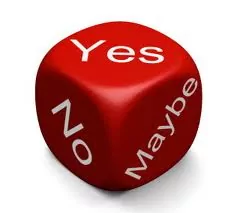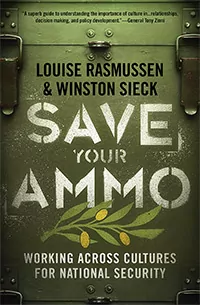
Indecisiveness is bad. Indecisive politicians are a bunch of wishy-washy flip-floppers.
Decisive entrepreneurs grow great businesses (or at least fail spectacularly while trying).
If a decision is a commitment to a course of action, then “indecision” is a failure to commit.
Indecisiveness might be thought of as chronic indecision. It’s sometimes treated as a clinical psychological condition. Other counselors also help ward off indecision. The indecisive college student may get counseling to finally choose a major or a career path.
How is it possible to suggest that some people might actually prefer to be indecisive?
How could indecisiveness be anything but lame decision making?
Frank Yates of the University of Michigan and his colleagues explored an interesting idea. They thought that our love of decisive people might be cultural. If so, people from some cultures actually prefer to be indecisive.
To find out, the research team looked at indecisiveness in Japanese, Taiwanese, and American college students.
Yates’ team included Li-Jun Ji, Takashi Oka, Ju-Whei Lee, Hiromi Shinotsuka, and Winston Sieck. Their paper, “Indecisiveness and Culture,” was published in the Journal of Cross-Cultural Psychology.
In a first study, the team used a self-report scale to measure indecisiveness. People in each culture were asked a series of questions. One question was, “I become anxious when making a decision.” Another was, “I like to be in a position to make decisions.”
The researchers found that the Chinese and American students were pretty much the same. Both groups were fairly decisive. The Japanese were different. As a group, they were much more indecisive.
The hypothesis seemed to be right. The team found an indecisive culture. But, maybe the Japanese don’t really like being indecisive. Maybe they see each other as wishy-washy.
To find out, Yates and his team asked the same questions again, but with a twist. This time, the students imagined they heard other people say each phrase. The students reported how much they would admire the person who made the statement.
The results came out the same as the first study. The Chinese and Americans admired decisive people. The Japanese really seemed to value indecisive people.
Why would the Japanese prefer indecisiveness?
One idea Yates explored is that Japanese decision makers like to be especially thorough. They like to analyze decision problems in detail before making a commitment. They don’t mind taking a long time to decide.
When an American might say “wishy-washy,” a Japanese might say, “balanced.”
The team examined this idea in a third study. This time, students from each of the three cultures were given a series of questions. For each, they chose between two options. Then they gave their confidence in their answers. The students were also asked to think out loud, saying everything on their minds while answering the questions.
The Japanese did, in fact, think through each question much more thoroughly than the Americans and Chinese. They said much more about each of the questions. They gave more reasons for their choices, and also more reasons for why each choice might be wrong.
The Americans and Chinese almost never gave reasons why their answers would be wrong. Perhaps they were afraid someone would call them, “flip-flopper.”
If you’re concerned that you are not decisive enough, take heart. Maybe you just want to be thorough and balanced in thinking things through.
There are not just other people like you, but even whole cultures.
On the other hand, you can do some things to help be more decisive as desired. Try writing as a strategy to make good decisions. And boost your confidence that you’ve chosen well.
Still can’t decide whether to be decisive or indecisive?
That might be a problem after all…
References


Haha that ending. I love it.
Hi Nick – Glad you enjoyed it… and read to the end 😉